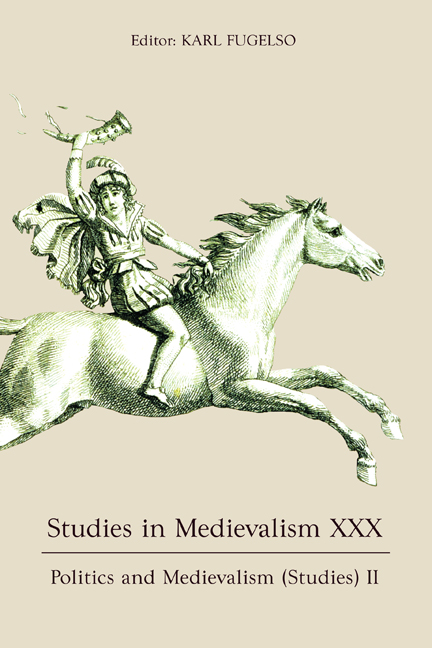Cry George: Grounding English National Identity in the Age of Brexit
Published online by Cambridge University Press: 24 March 2021
Summary
Audiences attending the National Theatre's production of Rory Mullarkey's 2017 play Saint George and the Dragon entered into what the play's designer, Rae Smith, described as “a landscape of the mind of the play.” On a diminishing slope, a map of England stretched from downstage into the horizon line; on stage, miniature buildings sketched out a village square – huts, a church, and a mill – transporting viewers, even before the play began, to an iconic place and time – a green isle, a village, the middle ages, an imagined England at the moment of its birth. The lights dim. A spotlight pulls a blond youth in tunic and breeches out of the audience, marking him as the hero. He wends his way through the audience and onto the stage to open the play:
A knyght ther was, and that a worthy man,
That fro the tymé that he first bigan
To riden out, he lovéd libertie;
Quoting the Canterbury Tales, he adheres faithfully to the poet's words until the third line, where Mullarkey replaces Chaucer's “chivalrie” with “libertie.” In the chasm opened up between these two words, we can read the play's articulation of the desire for and distance from the medieval fantasies conjured by the set, the costume, the Chaucerian verse, and Saint George himself.
Even as the play evokes the antiquity of English heritage, it signals the break that separates medieval and modern England, a break used to articulate a progressive view of English history that moves toward a happier and better, because freer, future. How many in the audience recognized the break between the medieval and modern captured in the slide from “chivalrie” to “libertie”? How many instead understood the play's medieval setting and Chaucerian language as confirmation of an essential national identity stretching back to a distant imagined past, and the story that follows in Act One, the story of how this young hero became the Saint George, as an origin story that both confers and affirms “Englishness”?
- Type
- Chapter
- Information
- Studies in Medievalism XXXPolitics and Medievalism (Studies) II, pp. 29 - 52Publisher: Boydell & BrewerPrint publication year: 2021



